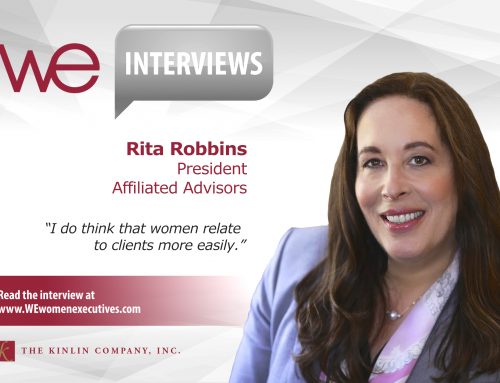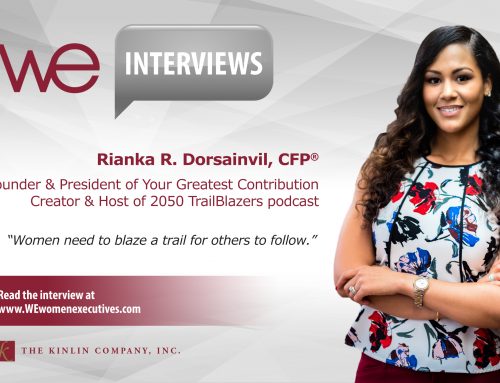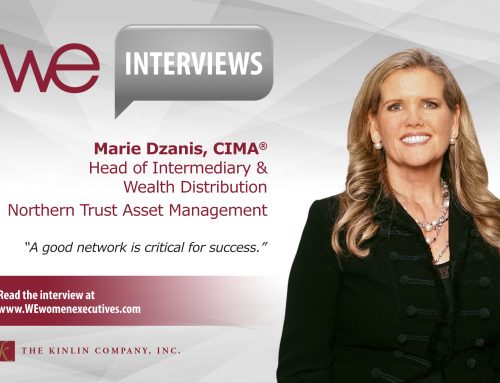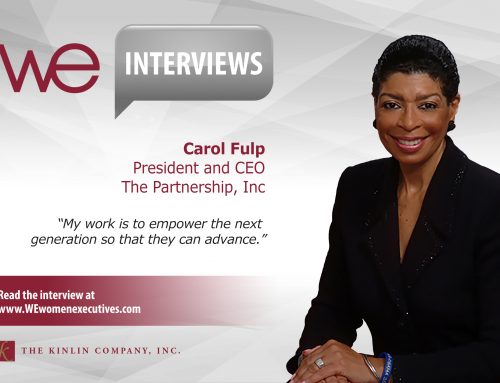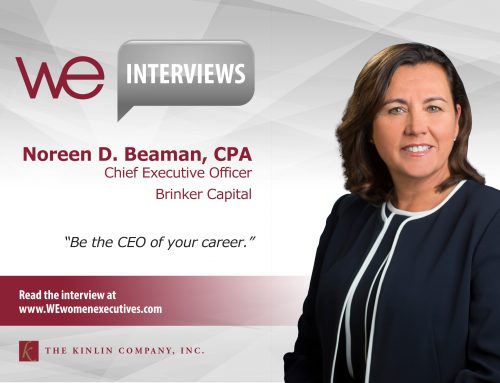 Doris Meister
Doris Meister
President of U.S. Markets, Tri-State
BNY Mellon Wealth Management
It’s evident from the outset: Doris Meister, President of U.S. Markets, Tri-State for BNY Mellon Wealth Management, is not one to shy away from a challenge. Meister oversees New York, New Jersey and Connecticut, with almost $30 billion in assets, 400 employees and 8 direct reports.
Within the US, Meister and colleagues, Tim Tully and David Emmes, are charged with running BNY Mellon’s core wealth management business. Collectively, the team has approximately $90 billion in assets and is comprised of approximately 1,000 people that serve individuals with a minimum of $2 million dollars in investible assets as well as smaller not-for-profit organizations.
I recently had the opportunity to sit down with Meister and talk about a variety of topics. In Part Two of our interview, we discussed what advice she might share with those who hope to follow in her footsteps.
A willingness to confront oneself
A cursory review of Meister’s career path makes it clear that she is very adept at navigating in a male-dominated environment. Nevertheless, I felt certain that she had encountered difficulties along the way. What, I inquired, were the biggest obstacles that she’d confronted during the course of her career and how had she overcome them?
- Don’t disqualify yourself
“One of the biggest obstacles most women have is themselves—fortunately, my husband has really helped me deal with this challenge. There have been times when I’ve been tempted to disqualify myself from a new challenge. I think most men tend to overestimate their abilities, while most women tend to underestimate their abilities. As women, we feel we have to be incredibly well qualified to take on a particular business challenge.
“I remember when I was approached about joining Christie’s as the first chief operating officer of their U.S. subsidiary, which ran North and Latin America. I collect art and have been an auction goer most of my life. Because of significant changes in the auction business, they were looking for a Wall Street person who had run a global business and knew a lot about risk taking. I almost talked myself out of taking a look at the job. I told my husband, ‘I don’t know if I can do this,’ and he said ‘Are you kidding me—of course you can do it.’ He said, ‘Do you think any guy with your experience and skill set thinks ‘Maybe I can’t do this. Of course not—they just go for it.’
“He has been a very strong advisor to me all along the way. That’s another piece of advice I’d offer: pick your spouse or partner carefully. My husband’s mother had worked for the family business, an agricultural trade publication company called Meister Media. She was on the editorial staff at a very unusual time for a woman to be working. As a result, my husband was accustomed to accomplished women. He wanted a well-educated wife who was accomplished and could hold her own.”
- Don’t be afraid to take risks
“Oftentimes, as a woman or a minority, you’re offered jobs that are hard, simply because a lot of other people don’t want them. They can afford to pass them by because they are offered the big, clear-cut opportunities. When I was offered the portfolio strategies assignment at First Boston in 1988, there probably weren’t many others who were eager to take it on because it was a turnaround.
“You have to be willing to take risks—calculated risks to be sure, but risks. By taking the position at Christie’s—a newly-created position—and the job at First Boston—a turnaround—I was able to figure out that I’m a builder/fixer-type person. Not only am I someone who likes running a business, but I also like starting a business, growing a business, or fixing a business. I’m not attracted to positions that require me to operate in ‘maintenance mode.’ Over the years, I’ve identified my strengths and interests and I encourage others to do the same—it will help you to succeed.
- Don’t compromise your core principles
“After I took the job as Christie’s president and COO, I found myself in a difficult situation. I reported to a CEO in the U.S. as well as to the CEO in London, so I was caught between two people. The CEO in London operated under different standards and had a very different view of the business. We were operating a U.S. subsidiary and we were not willing to accept business practices that did not conform to U.S. standards. This led to numerous uncomfortable situations, as you might imagine. Ultimately, I didn’t feel like I had a choice. I thought, ‘I’ve got to figure out a Plan B, because if this is the way things are, then this is not an environment that I can stay in.’
“I decided to go back to finance, but in a different area, working with private clients rather than institutions. Christie’s dealt with individuals, so I got to know the wealth management business. I realized that this was a rapidly changing part of the financial services industry. Relationships matter a lot in wealth management and the growth prospects were good for a career.
“Everybody faces periods in their career where things don’t work out. I haven’t actually failed at a business, but I’ve gone through periods where things haven’t gone as well as I want them to. But you keep going. I’ve had times where I’ve been asked to do something and thought, ‘I don’t know how we’re going to get this done,’ but you dig deep and rise to the occasion. I’ve read a lot about resilience and overcoming failure and I think it’s absolutely critical to your professional development and success.”
A commitment to collaborative leadership
Given the high standards she demands of herself, I found myself wondering about Meister’s management style. So I posed the following question to her: If I were to say to your direct reports, ‘Tell me about Doris,’ what do you think they would say?
“I hope they would say that I have a very collaborative style of leadership. I believe that’s the only way to operate today—the old hierarchical, paternalistic model doesn’t work anymore. It’s inefficient and ineffective in a professional service business where you have high-caliber people with a lot of intellectual capital who need to act quickly and decisively in teams, often across business lines. The world moves really fast now and it will move even faster in the future.
“If you expect people to be entrepreneurial, to take initiative and to advise sophisticated clients, you need to allow them to make decisions and be accountable. When I came to BNY Mellon Wealth Management in the fall of 2009, I inherited a more hierarchical culture. My colleagues kept looking “up” and waiting to be told precisely what they could and couldn’t do.
“After the merger between Bank of New York and Mellon in 2007, the CEO of BNY Mellon Wealth Management wanted to bring in someone from the outside who could shift the culture and adopt the Mellon model for Wealth Management. I was at Bernstein at the time and ready for a bigger challenge. As someone who loves to build and fix businesses, this has been a really fascinating management and leadership challenge.
“It is really hard to shift a culture. Our industry has changed quite a bit since 2008. You have to adjust as clients change and as the markets change. At BNY Mellon, we hold people accountable through objectives and metrics, some qualitative and others quantitative. You should have high expectations for people and be there to support them. Ultimately though, you need to hold them accountable.”
A few thoughts in retrospect
As our conversation drew to a close, I asked Meister if there were any lessons she’d learned that she would like to share with young female executives who might be looking to replicate her successes. What, I queried, do you know now that you wish you had known then?
- Assess yourself rigorously
“Take advantage of assessment tools. You really get a sense of who you are, what you’re good at, and what you really want to do. I figured a lot of that out on my own and through various coaching experiences. Self-assessment is worth the investment. If you know yourself, then taking that next step is going to feel a lot more natural.”
- Focus hard on your network
“I know that’s an overused expression, but over the course of my career I’ve had a lot of people help me at transition points. You have to be willing to ask for help.
“Men do this all the time; it’s just part of how they operate. If you went to college together, you know each other, you’re a friend of a friend and you need a job, they’re going to help you. Women need to operate that way too, and understand that guys operate that way. So if you ask someone for help, nine times out of ten they’ll help you. You need to cultivate a purposeful network—invest in it—and make sure that you’re helpful to people, too. All great relationships are mutually beneficial.”
- Decide how important it is to you that you have a career and a family
“I had my children late—I was over 40. It was good because my career was established and I knew who I was by then.
“The truth is that nobody has it all, nobody. In fact, I hate that phrase ‘having it all.’ It leads everyone to have completely unrealistic expectations. You have to decide what is important to you—a career, a family or both. I’m somebody who loves working—I love the independence and fulfillment it gives me—but I also love my family. You can have both a family and a career, but you have to be realistic about the stresses and the exhaustion, and you have to really want to do it.
“When I had my daughters, I was running the PBIG business at Merrill Lynch, which I had founded. I was traveling over half my time. It was also a brutally hard culture to work within, particularly for women. Then I had my daughters and realized, ‘I don’t want to be on the road over half my time with my children. And I don’t want to work in this culture for the rest of my career.’ So I left for Bernstein. It was a fabulous firm, I loved working there, and it was perfect for the time. Then BNY Mellon approached me and I moved very happily. I’m traveling more again now, but my kids are older.
“What I would say to women is, ‘You can make it work.’ My spouse is fantastic, he pitches in and we support each other. That’s important, because you will have enormous stress at home if your spouse’s expectations are not the same as yours. That’s part of what you’ve got to figure out.”

